The 25 Best Debut Albums of the 2020s So Far
This decade has made room for some of the best and brightest voices to emerge.
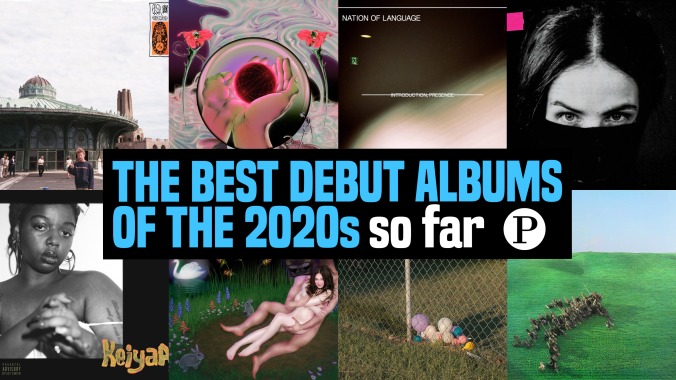
If anything is true, it’s that the last few trips around the sun have made room for some of the best and brightest voices to emerge. Beginning with Nation of Language in 2020 and winding all the way into Friko’s Where we’ve been, Where we go from here this year, the slate of debut albums this decade has been immense and galvanizing. From electronica, to country, to chart-slaying pop, to that sweet, sweet rock ‘n’ roll music, the last four-and-a-half years have been extraordinary, as we’ve watched so many of our Best of What’s Next picks blossom into full-fledged contemporary G.O.A.T.s. Here are Paste’s picks for the 25 best debut albums of the 2020s so far, in alphabetical order. All albums on this list were released between January 1, 2020 and October 1, 2024. —Matt Mitchell, Music Editor
Being Dead: When Horses Would Run
 When Horses Would Run is a special record to behold. From the Link Ray guitar rumbles on opener “The Great American Picnic” to the closer “Oklahoma Nova Scotia”—which arrives like Neil Young and Daniel Johnston had a baby out of psychedelic wedlock—there is something on this album for everyone who presses play or shuffle. At 13 tracks, it’s all killer no filler. Even a short arrangement like “God vs. Bible,” which only contains two lines (If God owned the bible, he’d read it everyday) repeated three times, is lush and harmonious. Sandwiched somewhere in-between gospel music and Devo before Devo discovered synth-pop, Being Dead are cowboys getting their rocks off on mad-lib verses and drugged-out backdrops. There is discovery and curiosity at every turn, a swift detour from any of their rock ‘n’ roll contemporaries who fall into a lulling sonic familiarity with every new project. Being Dead expel all instances of psych-folk pretentiousness across this baker’s dozen of weirdo-concertos. When Horses Would Run is an authentic, dexterous, impressionable stroke of brilliance from three friends who can’t help but make awing music when in company with each other. In a past life, perhaps Shmoofy and Falcon Bitch met—as they like to joke—as chimney sweeps, shoemakers or acrobats, and that bond feels as mythical as it is touted to be. —Matt Mitchell
When Horses Would Run is a special record to behold. From the Link Ray guitar rumbles on opener “The Great American Picnic” to the closer “Oklahoma Nova Scotia”—which arrives like Neil Young and Daniel Johnston had a baby out of psychedelic wedlock—there is something on this album for everyone who presses play or shuffle. At 13 tracks, it’s all killer no filler. Even a short arrangement like “God vs. Bible,” which only contains two lines (If God owned the bible, he’d read it everyday) repeated three times, is lush and harmonious. Sandwiched somewhere in-between gospel music and Devo before Devo discovered synth-pop, Being Dead are cowboys getting their rocks off on mad-lib verses and drugged-out backdrops. There is discovery and curiosity at every turn, a swift detour from any of their rock ‘n’ roll contemporaries who fall into a lulling sonic familiarity with every new project. Being Dead expel all instances of psych-folk pretentiousness across this baker’s dozen of weirdo-concertos. When Horses Would Run is an authentic, dexterous, impressionable stroke of brilliance from three friends who can’t help but make awing music when in company with each other. In a past life, perhaps Shmoofy and Falcon Bitch met—as they like to joke—as chimney sweeps, shoemakers or acrobats, and that bond feels as mythical as it is touted to be. —Matt Mitchell
Beth Gibbons: Lives Outgrown (2024)
 If you arrive at Lives Outgrown looking for something that sounds like Portishead, you might find your thirst briefly satiated by “Floating on a Moment”—but it’s only a slight parallel. The song is melancholic yet enchanting, as Beth Gibbons finds herself trapped in a purgatory of middle-age—the prosperous hope of the future suddenly feels dimmer, and retrospect snaps itself back into place with a much less graceful ferocity. Lives Outgrown achieves a wondrous feat of relatability—even if what inspired these songs are not universal feelings. Gibbons’s splendor is her innate ability to make our own experiences feel denser and louder. When she sings about the timing never being right “when you’re losing a soul” on “Burden of Life,” anyone who has confronted the monstrous clamors of grief may feel it deeply. Gibbons likens her response to lostness to pebbles holding court on a shoreside, to understanding why generations dwindle. “I used to feel the feelings,” she admits, over the strums of her own acoustic guitar and Lee Harris’s percussive thrums. “Love that I once said I’d never rile.” Gibbons’s first solo record is embroidered with raw, cherished instrumentation that duets with open spaces. It is sometimes beautiful, sometimes jagged and worrisome. —Matt Mitchell
If you arrive at Lives Outgrown looking for something that sounds like Portishead, you might find your thirst briefly satiated by “Floating on a Moment”—but it’s only a slight parallel. The song is melancholic yet enchanting, as Beth Gibbons finds herself trapped in a purgatory of middle-age—the prosperous hope of the future suddenly feels dimmer, and retrospect snaps itself back into place with a much less graceful ferocity. Lives Outgrown achieves a wondrous feat of relatability—even if what inspired these songs are not universal feelings. Gibbons’s splendor is her innate ability to make our own experiences feel denser and louder. When she sings about the timing never being right “when you’re losing a soul” on “Burden of Life,” anyone who has confronted the monstrous clamors of grief may feel it deeply. Gibbons likens her response to lostness to pebbles holding court on a shoreside, to understanding why generations dwindle. “I used to feel the feelings,” she admits, over the strums of her own acoustic guitar and Lee Harris’s percussive thrums. “Love that I once said I’d never rile.” Gibbons’s first solo record is embroidered with raw, cherished instrumentation that duets with open spaces. It is sometimes beautiful, sometimes jagged and worrisome. —Matt Mitchell
Chat Pile: God’s Country (2022)
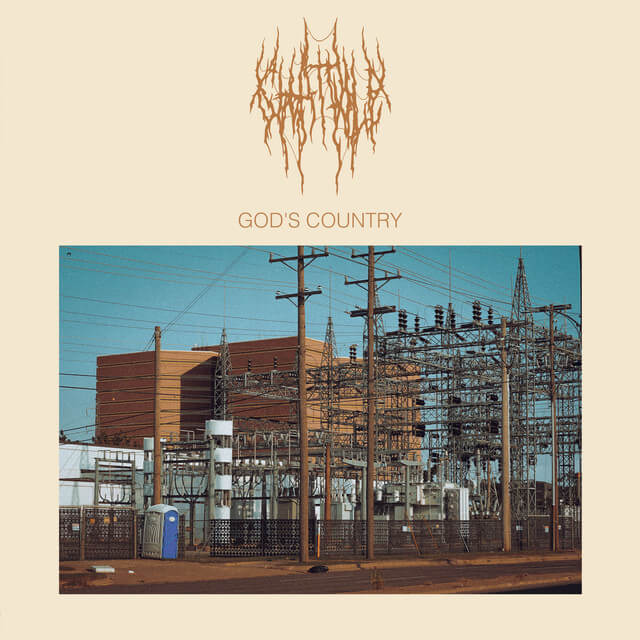 Chat Pile’s debut LP ends with a nine-minute narrative that sounds outlandish on paper: A man is tormented by a nightmare figure resembling McDonald’s mascot Grimace, to the point of suicide. The surreally macabre premise is heightened all the more by the track’s name: “Grimace_Smoking_Weed.jpeg,” a title calling to mind a tossed-off joke file name or online message to a friend in lieu of an actual image. But the song itself is arguably the most chilling selection on an already-bleak record, in no small part due to vocalist Raygun Busch’s tortured contributions that sound an inch from self-destructive action at a moment’s notice—even before erupting into agonized shrieks in protest of the “purple man” who haunts him. When the track’s back half stretches into a sludgy death march, his lyrics become all the more direct, culminating in Busch crying out, “I don’t wanna be alive anymore / Do you?” The pressure of the track proves to be so suffocating that even Busch’s final scream of Grimace’s name to close the album becomes bloodcurdling, where a more ironic approach would have rendered the whole thing high camp. “Grimace_Smoking_Weed.jpeg” is, in microcosm, emblematic of the tricky balance Chat Pile evokes with visceral ugliness throughout God’s Country. The absurdity and paradox of capitalist landscapes are laid bare, depicted with just as much horror as the band believes they ought to merit. Just as characters for fast-food marketing and toys become taunting reminders of the soul-crushing nature of post-industrialization, so, too, does the illogical nature of houselessness in a nation with buildings to spare, and the pursuit of wealth above personal fulfillment. —Natalie Marlin [Read our Best of What’s Next feature]
Chat Pile’s debut LP ends with a nine-minute narrative that sounds outlandish on paper: A man is tormented by a nightmare figure resembling McDonald’s mascot Grimace, to the point of suicide. The surreally macabre premise is heightened all the more by the track’s name: “Grimace_Smoking_Weed.jpeg,” a title calling to mind a tossed-off joke file name or online message to a friend in lieu of an actual image. But the song itself is arguably the most chilling selection on an already-bleak record, in no small part due to vocalist Raygun Busch’s tortured contributions that sound an inch from self-destructive action at a moment’s notice—even before erupting into agonized shrieks in protest of the “purple man” who haunts him. When the track’s back half stretches into a sludgy death march, his lyrics become all the more direct, culminating in Busch crying out, “I don’t wanna be alive anymore / Do you?” The pressure of the track proves to be so suffocating that even Busch’s final scream of Grimace’s name to close the album becomes bloodcurdling, where a more ironic approach would have rendered the whole thing high camp. “Grimace_Smoking_Weed.jpeg” is, in microcosm, emblematic of the tricky balance Chat Pile evokes with visceral ugliness throughout God’s Country. The absurdity and paradox of capitalist landscapes are laid bare, depicted with just as much horror as the band believes they ought to merit. Just as characters for fast-food marketing and toys become taunting reminders of the soul-crushing nature of post-industrialization, so, too, does the illogical nature of houselessness in a nation with buildings to spare, and the pursuit of wealth above personal fulfillment. —Natalie Marlin [Read our Best of What’s Next feature]
Dean Johnson: Nothing For Me, Please (2023)
 Hailing from Washington State, folk troubadour Dean Johnson has been around for almost two decades. Today, his long-awaited debut LP, Nothing For Me, Please finally arrives. Conjuring the best pieces of John Prine, Townes Van Zandt and Blaze Foley, Nothing For Me, Please is not your prototypical country record. Instead, it’s a widely spun tapestry of colored lands where curious eyes and hearts roam. Songs like “Faraway Skies” and “True Love” are immediate bedrocks of contemporary folk playlists. And, at the center of it all, remains Johnson’s awing vocal, which careens through octaves into a breathtaking falsetto you can’t help but fall in love with. Each song tells a complete tale, and Johnson’s debut album Nothing For Me, Please is without filler. At a concise nine chapters, the album rings in like a portrait of his life thus far, which makes sense, given that the oldest entry in the tracklist was written as long ago as 2004. Standout song “Shouldn’t Say Mine” is a pure acoustic bliss with soft rock percussion that perfectly compliments Johnson’s voice. The song could be in communion with anything from Sweet Baby James-era James Taylor or anything Jim Croce put out in the Nixon years. As a high-pitched piano rings out, Johnson laments: “I held you too tight, my weakness it showed / I was in your way trying to get close / You’re after my world, a rolling stone / Alright, alright, I’ll leave you alone / Too much and not enough, close enough to tear each other up.” Johnson is no longer Seattle’s best-kept secret. The honest, warm storytelling on Nothing For Me, Please is sure to gain him a few more fans, and for good reason. —Matt Mitchell
Hailing from Washington State, folk troubadour Dean Johnson has been around for almost two decades. Today, his long-awaited debut LP, Nothing For Me, Please finally arrives. Conjuring the best pieces of John Prine, Townes Van Zandt and Blaze Foley, Nothing For Me, Please is not your prototypical country record. Instead, it’s a widely spun tapestry of colored lands where curious eyes and hearts roam. Songs like “Faraway Skies” and “True Love” are immediate bedrocks of contemporary folk playlists. And, at the center of it all, remains Johnson’s awing vocal, which careens through octaves into a breathtaking falsetto you can’t help but fall in love with. Each song tells a complete tale, and Johnson’s debut album Nothing For Me, Please is without filler. At a concise nine chapters, the album rings in like a portrait of his life thus far, which makes sense, given that the oldest entry in the tracklist was written as long ago as 2004. Standout song “Shouldn’t Say Mine” is a pure acoustic bliss with soft rock percussion that perfectly compliments Johnson’s voice. The song could be in communion with anything from Sweet Baby James-era James Taylor or anything Jim Croce put out in the Nixon years. As a high-pitched piano rings out, Johnson laments: “I held you too tight, my weakness it showed / I was in your way trying to get close / You’re after my world, a rolling stone / Alright, alright, I’ll leave you alone / Too much and not enough, close enough to tear each other up.” Johnson is no longer Seattle’s best-kept secret. The honest, warm storytelling on Nothing For Me, Please is sure to gain him a few more fans, and for good reason. —Matt Mitchell
Dijon: Absolutely (2021)
 Made to sound like a contemporary version of a live record, Absolutely comes worn in and ready to wear, embracing collaboration as a reflection of a shared humanity. The recording process was propelled by a constant drive amongst Dijon and his fellow musicians to excite each other, and the moments they carve out are so delicately earnest they make catching lightning in a bottle seem like a routine fishing trip. The album explores imperfect memories of imperfect relationships, embracing life both as it happens and as we filter it. As Dijon surrenders to his desire to tear down the process and build it back up from scratch, Absolutely becomes a thoughtfully life-affirming debut. —David Feigelson
Made to sound like a contemporary version of a live record, Absolutely comes worn in and ready to wear, embracing collaboration as a reflection of a shared humanity. The recording process was propelled by a constant drive amongst Dijon and his fellow musicians to excite each other, and the moments they carve out are so delicately earnest they make catching lightning in a bottle seem like a routine fishing trip. The album explores imperfect memories of imperfect relationships, embracing life both as it happens and as we filter it. As Dijon surrenders to his desire to tear down the process and build it back up from scratch, Absolutely becomes a thoughtfully life-affirming debut. —David Feigelson
Dry Cleaning: New Long Leg (2021)
 British quartet Dry Cleaning extract the profound from the mundane and the meaningful from the nonsensical. On “Viking Hair” from the band’s 2019 EP Boundary Road Snacks and Drinks, frontperson Florence Shaw’s everyday sexual fantasies stood in for the arbitrary guidelines determining acceptable and shameful desires; as she surreally rattled off “traditional fish bar, chicken and ribs, bus pass” and more on “Traditional Fish” from the band’s other 2019 EP, Sweet Princess, she scorned the very idea of commerce. And she did it all in a bone-dry, comical sing-speak set to rollicking, if not straightforward, post-punk courtesy of guitarist Tom Dowse, bassist Lewis Maynard and drummer Nick Buxton. New Long Leg, Dry Cleaning’s debut album (and first release for 4AD), is all of that and none of that. Shaw’s semi-accidental revelations about the ridiculousness of being alive when we live in a society are sharper than ever, and her voice newly takes the tone of a psychic waking up from a 70-year nap. Dowse, Maynard and Buxton have massively upped their game, too: The EPs’ post-punk foundation remains, but atop it come stomping glam riffs, dream-pop arpeggios and razor-sharp melodies that loosen Dry Cleaning’s prior tension without entirely taming the mania. —Max Freedman [Read our feature]
British quartet Dry Cleaning extract the profound from the mundane and the meaningful from the nonsensical. On “Viking Hair” from the band’s 2019 EP Boundary Road Snacks and Drinks, frontperson Florence Shaw’s everyday sexual fantasies stood in for the arbitrary guidelines determining acceptable and shameful desires; as she surreally rattled off “traditional fish bar, chicken and ribs, bus pass” and more on “Traditional Fish” from the band’s other 2019 EP, Sweet Princess, she scorned the very idea of commerce. And she did it all in a bone-dry, comical sing-speak set to rollicking, if not straightforward, post-punk courtesy of guitarist Tom Dowse, bassist Lewis Maynard and drummer Nick Buxton. New Long Leg, Dry Cleaning’s debut album (and first release for 4AD), is all of that and none of that. Shaw’s semi-accidental revelations about the ridiculousness of being alive when we live in a society are sharper than ever, and her voice newly takes the tone of a psychic waking up from a 70-year nap. Dowse, Maynard and Buxton have massively upped their game, too: The EPs’ post-punk foundation remains, but atop it come stomping glam riffs, dream-pop arpeggios and razor-sharp melodies that loosen Dry Cleaning’s prior tension without entirely taming the mania. —Max Freedman [Read our feature]
Ela Minus: acts of rebellion (2020)
 As 2018 ended and 2019 began, Ela Minus was putting the finishing touches on what would become the most prescient song of 2020. “We’re afraid we’ll run out of time / To stand up for our rights / You won’t make us stop,” the Brooklyn-via-Bogotá synth savant murmurs invitingly on “megapunk,” which finds a brooding-then-explosive middle ground between New Order and Aphex Twin. Before the song’s final chorus, she becomes even more direct: “You’re choosing to lead us apart, but against all odds,” she warns, “you still won’t make us stop.” As the apex of an album released 11 days before the 2020 presidential election, “megapunk” couldn’t be more timely. It’s an uncompromising reminder that if the current president and his cronies attempt the coup they’re all but promising, we need to rise up even if we face threats of violence and jail. It’s also, as the second single and most thrashing entry on an album named acts of rebellion, something of a thesis statement. On her debut LP, Ela Minus explores the role of community in subverting both fascist governments and oppressive everyday expectations. It’s a prophetic, vital message, and it’s wrapped in some of the best electronic and pop music of the decade. —Max Freedman
As 2018 ended and 2019 began, Ela Minus was putting the finishing touches on what would become the most prescient song of 2020. “We’re afraid we’ll run out of time / To stand up for our rights / You won’t make us stop,” the Brooklyn-via-Bogotá synth savant murmurs invitingly on “megapunk,” which finds a brooding-then-explosive middle ground between New Order and Aphex Twin. Before the song’s final chorus, she becomes even more direct: “You’re choosing to lead us apart, but against all odds,” she warns, “you still won’t make us stop.” As the apex of an album released 11 days before the 2020 presidential election, “megapunk” couldn’t be more timely. It’s an uncompromising reminder that if the current president and his cronies attempt the coup they’re all but promising, we need to rise up even if we face threats of violence and jail. It’s also, as the second single and most thrashing entry on an album named acts of rebellion, something of a thesis statement. On her debut LP, Ela Minus explores the role of community in subverting both fascist governments and oppressive everyday expectations. It’s a prophetic, vital message, and it’s wrapped in some of the best electronic and pop music of the decade. —Max Freedman
Ethel Cain: Preacher’s Daughter (2022)
 Ethel Cain is on a brilliant ascent. 2021’s Inbred EP solidified her position as a force to be witnessed in American music as she wrestled with the uniquely Southern version of the American dream that shaped her young life. The divinity of gospel, the audacity of heartland rock and the frankness of 2010s Tumblr-era pop collide into an arresting narrative spectacle, portraying the experience of a woman who is intimately familiar with depraved violence, the gospel and the strict social hierarchies of the South and the Plains. The EPs have only revealed a portion of Cain’s lore, but on her whopping 75-minute debut LP Preacher’s Daughter, Ethel Cain, the narrative figure and the musical sensation, manifests a breathtaking account of a woman, her mysterious partner and her troubled family. Much as Inbred mangled Americana, ambient folk and slowcore into a terrifying sonic experiment, Preacher’s Daughter is a sound all its own. Imagine what would happen if singers as familiar as Bruce Springsteen or Nichole Nordeman were backed by Midwife or Sunn O))). The glamorous and aphrodisiac sound of Lana Del Rey is undoubtedly there, but the thematic and instrumental elements on Preacher’s Daughter possess a weightiness and impulse away from ironic glamorization of the American dream and toward outright criticism that render the comparison only so relevant. At times the record throbs with a noisy, immersive intensity before transitioning into the kind of epic guitar solos that decorated the cult of rock personalities in generations past. This collision of dark ambient and Def Leppard is uniquely American in the best way conceivable. —Devon Chodzin
Ethel Cain is on a brilliant ascent. 2021’s Inbred EP solidified her position as a force to be witnessed in American music as she wrestled with the uniquely Southern version of the American dream that shaped her young life. The divinity of gospel, the audacity of heartland rock and the frankness of 2010s Tumblr-era pop collide into an arresting narrative spectacle, portraying the experience of a woman who is intimately familiar with depraved violence, the gospel and the strict social hierarchies of the South and the Plains. The EPs have only revealed a portion of Cain’s lore, but on her whopping 75-minute debut LP Preacher’s Daughter, Ethel Cain, the narrative figure and the musical sensation, manifests a breathtaking account of a woman, her mysterious partner and her troubled family. Much as Inbred mangled Americana, ambient folk and slowcore into a terrifying sonic experiment, Preacher’s Daughter is a sound all its own. Imagine what would happen if singers as familiar as Bruce Springsteen or Nichole Nordeman were backed by Midwife or Sunn O))). The glamorous and aphrodisiac sound of Lana Del Rey is undoubtedly there, but the thematic and instrumental elements on Preacher’s Daughter possess a weightiness and impulse away from ironic glamorization of the American dream and toward outright criticism that render the comparison only so relevant. At times the record throbs with a noisy, immersive intensity before transitioning into the kind of epic guitar solos that decorated the cult of rock personalities in generations past. This collision of dark ambient and Def Leppard is uniquely American in the best way conceivable. —Devon Chodzin
Friko: Where we’ve been, Where we go from here (2024)
 Friko’s debut album moves at an unexpected pace, transitioning from visceral high-energy tracks to subdued ballads seamlessly. Niko Kapetan and Bailey Minzenberger’s penchant for theatrical emotion makes these adjustments feel natural and warranted in context of telling the greater emotional story of the songs. The band is known for their spirited live performances, a quality that pervades the unrestrained anthems on the album. “Crashing Through” whips listeners into a rowdy and distorted introduction saturated with ringing guitars and pounding percussion; Kapetan’s subdued vocals feel whispered in the verses, creating an effect of distance and aloofness that contrasts the noisy and unbridled instrumentals at the beginning and end of the track. Raucous and jeering guitar riffs conclude the track, appearing in red, incendiary bursts similar to the end of “Statues,” in which the hard-hitting track falls into a gritty cacophony of distortion and noise. Where we’ve been, Where we go from here leaves you breathless, and the duo’s unbridled approach to songwriting and instrumentation creates striking and emotive tracks that expand lavishly. —Grace Ann Natanawan [Read our feature]
Friko’s debut album moves at an unexpected pace, transitioning from visceral high-energy tracks to subdued ballads seamlessly. Niko Kapetan and Bailey Minzenberger’s penchant for theatrical emotion makes these adjustments feel natural and warranted in context of telling the greater emotional story of the songs. The band is known for their spirited live performances, a quality that pervades the unrestrained anthems on the album. “Crashing Through” whips listeners into a rowdy and distorted introduction saturated with ringing guitars and pounding percussion; Kapetan’s subdued vocals feel whispered in the verses, creating an effect of distance and aloofness that contrasts the noisy and unbridled instrumentals at the beginning and end of the track. Raucous and jeering guitar riffs conclude the track, appearing in red, incendiary bursts similar to the end of “Statues,” in which the hard-hitting track falls into a gritty cacophony of distortion and noise. Where we’ve been, Where we go from here leaves you breathless, and the duo’s unbridled approach to songwriting and instrumentation creates striking and emotive tracks that expand lavishly. —Grace Ann Natanawan [Read our feature]
Good Looks: Bummer Year (2022)
 The saying goes that you have your entire life to write your first record, and Bummer Year was recorded all the way back in August of 2018 and mastered a year later before sitting on the shelf until April 2022. If you are already hip to Bummer Year, then you are likely already in the know about Tyler Jordan’s penmanship. He’s the kind of lyricist who acts like a landscape painter, sitting before his subjects for hours, days and lifetimes before putting the final brushstrokes on an image. This is something that Jordan is well-aware of and embraces—likening his process to that one Family Guy bit about Randy Newman “singing about what he sees.” Bummer Year is a DIY punk and Americana sound colored by its makers’ underdog, subversive and tender outlook towards a roughed-up, unbearable world. It’s why Good Looks can fill an entire Austin bar with fans on short-notice and tear the whole joint up; it’s why Jake Ames has gone from a hometown guitar hero to one of the tightest pickers in the country. Good Looks have put everyone on notice, and their claws are still being sharpened. For Jordan, Ames, Phil Dunne and Harrison Anderson, making music has now transcended the big-picture, communal spirit you’d expect a great band with a far-away ceiling to aim for. Through tragedy, healing and resilience, the band went through hell and back before their second record even came out. And yet, the mission for them remains the same as it was six years ago: Take everything day by day, song by song. Good Looks were put on this earth to make music in each other’s company. —Matt Mitchell [Read our feature]
The saying goes that you have your entire life to write your first record, and Bummer Year was recorded all the way back in August of 2018 and mastered a year later before sitting on the shelf until April 2022. If you are already hip to Bummer Year, then you are likely already in the know about Tyler Jordan’s penmanship. He’s the kind of lyricist who acts like a landscape painter, sitting before his subjects for hours, days and lifetimes before putting the final brushstrokes on an image. This is something that Jordan is well-aware of and embraces—likening his process to that one Family Guy bit about Randy Newman “singing about what he sees.” Bummer Year is a DIY punk and Americana sound colored by its makers’ underdog, subversive and tender outlook towards a roughed-up, unbearable world. It’s why Good Looks can fill an entire Austin bar with fans on short-notice and tear the whole joint up; it’s why Jake Ames has gone from a hometown guitar hero to one of the tightest pickers in the country. Good Looks have put everyone on notice, and their claws are still being sharpened. For Jordan, Ames, Phil Dunne and Harrison Anderson, making music has now transcended the big-picture, communal spirit you’d expect a great band with a far-away ceiling to aim for. Through tragedy, healing and resilience, the band went through hell and back before their second record even came out. And yet, the mission for them remains the same as it was six years ago: Take everything day by day, song by song. Good Looks were put on this earth to make music in each other’s company. —Matt Mitchell [Read our feature]
Greg Freeman: I Looked Out (2022)
 There’s a certain Vermonter who made a really tremendous singer-songwriter record in 2022, and his name is Greg fucking Freeman—he also happens to be one of the best guitarists alive. I Looked Out is dripping with feedback, distorted by the reliquary of Florida men, sobering, end-times-ridden folklore and a Holy War of the interpersonal woven into the God-fearing and mysterious. These songs, be it the ferocious “Colorado” or the pummeling, skyscraping “Palms,” gnaw away at you. “Come and drink my heartache, draw a knife across that scarlet seal,” Freeman sings on “Come and Change My Body.” “Take a sip now, break the cup you drank from underneath your heel.” It’s like Isaac Brock doing Crazy Horse—harmonica, wooziness, horn section, somber, ornamental absurdity and all. The five-and-a-half-minute “I’ll See You in My Mind” is some of the finest rock ‘n’ roll of this decade, sung with patience but played with urgency. As Freeman’s licks sprawl out, Noah Kesey keeps the melody organized while Zack James, Thaya Zalewski, Lily Seward, Scott Maynard, Sam Atallah, Ben Rodgers, and Cam Gilmour chip in to balance the equilibrium. If you don’t think I Looked Out is one of the best rock records of this generation, you should clean that wax out of your ears. —Matt Mitchell
There’s a certain Vermonter who made a really tremendous singer-songwriter record in 2022, and his name is Greg fucking Freeman—he also happens to be one of the best guitarists alive. I Looked Out is dripping with feedback, distorted by the reliquary of Florida men, sobering, end-times-ridden folklore and a Holy War of the interpersonal woven into the God-fearing and mysterious. These songs, be it the ferocious “Colorado” or the pummeling, skyscraping “Palms,” gnaw away at you. “Come and drink my heartache, draw a knife across that scarlet seal,” Freeman sings on “Come and Change My Body.” “Take a sip now, break the cup you drank from underneath your heel.” It’s like Isaac Brock doing Crazy Horse—harmonica, wooziness, horn section, somber, ornamental absurdity and all. The five-and-a-half-minute “I’ll See You in My Mind” is some of the finest rock ‘n’ roll of this decade, sung with patience but played with urgency. As Freeman’s licks sprawl out, Noah Kesey keeps the melody organized while Zack James, Thaya Zalewski, Lily Seward, Scott Maynard, Sam Atallah, Ben Rodgers, and Cam Gilmour chip in to balance the equilibrium. If you don’t think I Looked Out is one of the best rock records of this generation, you should clean that wax out of your ears. —Matt Mitchell
Jane Remover: Frailty (2021)
 On Frailty, dariacore was born. Sonically, though, Jane Remover’s music is a masterful amalgam of myriad other subgenres: digicore, hyperpop, emo, bedroom pop, EDM, Nintendocore, the list goes on. If such an extensive list makes Frailty sound like a meandering mess, then it simply speaks to Jane’s impressive skills as a producer. Nothing sounds disjointed or out of place. Frailty, clocking in at nearly an hour with 13 tracks, is coherent yet ambitious, focused yet towering. Jane has said that they are a massive fan of EDM artists such as Porter Robinson and Skrillex, yet they also borrow from videogame soundtracks, including OSTs for Undertale and the Pokémon series. At the same time, their music evokes that of a modern wave of rising producers, including PinkPantheress and Glaive, as well as more straightforward indie-pop like Passion Pit. It’s quite the feat for all these styles to coalesce with such finesse, and that’s precisely what Jane has achieved. Frailty is rife with catchy hooks, as exemplified on tracks like “your clothes” and “search party,” but Jane Remover infuses them with enough instability and surprise to make them more exciting. “movies for guys,” for instance, could be a relatively elementary pop song about a crush gone awry. Instead, it dissolves into a chaotic saga divided by symphonic, experimental movements. —Grant Sharples
On Frailty, dariacore was born. Sonically, though, Jane Remover’s music is a masterful amalgam of myriad other subgenres: digicore, hyperpop, emo, bedroom pop, EDM, Nintendocore, the list goes on. If such an extensive list makes Frailty sound like a meandering mess, then it simply speaks to Jane’s impressive skills as a producer. Nothing sounds disjointed or out of place. Frailty, clocking in at nearly an hour with 13 tracks, is coherent yet ambitious, focused yet towering. Jane has said that they are a massive fan of EDM artists such as Porter Robinson and Skrillex, yet they also borrow from videogame soundtracks, including OSTs for Undertale and the Pokémon series. At the same time, their music evokes that of a modern wave of rising producers, including PinkPantheress and Glaive, as well as more straightforward indie-pop like Passion Pit. It’s quite the feat for all these styles to coalesce with such finesse, and that’s precisely what Jane has achieved. Frailty is rife with catchy hooks, as exemplified on tracks like “your clothes” and “search party,” but Jane Remover infuses them with enough instability and surprise to make them more exciting. “movies for guys,” for instance, could be a relatively elementary pop song about a crush gone awry. Instead, it dissolves into a chaotic saga divided by symphonic, experimental movements. —Grant Sharples
Jockstrap: I Love You Jennifer B (2022)

The debut album from London duo Jockstrap—Georgia Ellery, also of Black Country, New Road, and Taylor Skye—takes all of one minute to announce itself as something remarkable. Opener “Neon” draws you in with sparse acoustic guitar and Ellery’s lithe vocal, only to wallop you with rib cage-rattling bass, a film score-esque theremin sample and a ghostly chorus. It’s the first “holy shit” moment of many on the record, “a collection of Jockstrap tracks that have been three years in the making,” per the duo. Dramatic strings, synths and chanting usher “Concrete Over Water” into EDM banger mode; harp plucks flicker between organic and artificial to introduce “Angst”; closer “50/50” feels like a club anthem for the end of the world. Euphoric and disorienting at once, their deconstructed dance-pop music brings cubist art to mind, assembling familiar shapes into structures that are altogether alien. As Jockstrap leave the launchpad, you can either crane your neck at their dizzying ascent, or hold on for dear life and enjoy the ride, wherever it may take you. —Scott Russell [Read our feature]
Kara Jackson: Why Does the Earth Give Us People to Love? (2023)
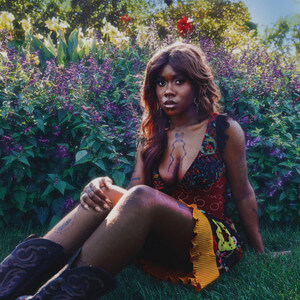 What the Chicago-based interdisciplinary writer and musician Kara Jackson accomplishes on her debut LP Why Does The Earth Give Us People To Love is not “raw,” at least not in the sense that the writing is unrefined or off-the-cuff. Instead, that distinction comes through how the listener is made to feel listening to Jackson’s cosmic country jams. Lines like “Some people take lives to be recognized” are delivered with nonchalance, and the way she belts “don’t you bother me” over swirling harp notes elicits chills. Jackson is communicating her message with precise orchestration for optimal impact. As a listener, you may feel exposed, maybe even singled out. Jackson starts the album with “recognized,” a lo-fi exercise contemplating what people do for validation and why. As she and her piano arpeggiate, she raises the stakes. It contrasts with the lush “no fun/party,” where her theatrical voice balances with a racing guitar and reclining strings. She reckons with men who won’t rise to the occasion and take that out on her and, as much as she laments the loss of companionship, she remembers that the other person is just as liable to miss her, too. Across the album, Jackson’s expert guitar work and lyricism reveals an extensive archive of her relationships with peers, partners and more who she’s entrusted with her love. Many of those people are men who’ve mishandled that love. When Jackson is solo, she is a force. With her friends’ help, the result is divine. —Devon Chodzin
What the Chicago-based interdisciplinary writer and musician Kara Jackson accomplishes on her debut LP Why Does The Earth Give Us People To Love is not “raw,” at least not in the sense that the writing is unrefined or off-the-cuff. Instead, that distinction comes through how the listener is made to feel listening to Jackson’s cosmic country jams. Lines like “Some people take lives to be recognized” are delivered with nonchalance, and the way she belts “don’t you bother me” over swirling harp notes elicits chills. Jackson is communicating her message with precise orchestration for optimal impact. As a listener, you may feel exposed, maybe even singled out. Jackson starts the album with “recognized,” a lo-fi exercise contemplating what people do for validation and why. As she and her piano arpeggiate, she raises the stakes. It contrasts with the lush “no fun/party,” where her theatrical voice balances with a racing guitar and reclining strings. She reckons with men who won’t rise to the occasion and take that out on her and, as much as she laments the loss of companionship, she remembers that the other person is just as liable to miss her, too. Across the album, Jackson’s expert guitar work and lyricism reveals an extensive archive of her relationships with peers, partners and more who she’s entrusted with her love. Many of those people are men who’ve mishandled that love. When Jackson is solo, she is a force. With her friends’ help, the result is divine. —Devon Chodzin
KeiyaA: Forever, Ya Girl (2020)
 KeiyaA’s debut album has a certain rawness that permeates whatever space in which you choose to listen to it. Her lo-fi R&B is marked by refined vocals, defiant spoken-word and spacious backdrops. Its celebration of Blackness is jubilant, and it’s also a candid examination of the self, both alone and in the presence of those who’ve wronged her. Songs like “I Want My Things” fuse these themes with wisdom and grit (“I’m wrestled with conflicts centered on topics of liberation / I’m riddled with demons, it’s time to release them once and for all / I’m dealing with burdens I never deserved, yet I’m responsible / The wheels gone keep turning, and Imma keep burning, so baby roll up”). KeiyaA stresses the importance of self-preservation via mature rumination and blissful relaxation, and her thought-provoking yet understated instrumentals are an invitation for listeners to engage in those practices, as well. —Lizzie Manno
KeiyaA’s debut album has a certain rawness that permeates whatever space in which you choose to listen to it. Her lo-fi R&B is marked by refined vocals, defiant spoken-word and spacious backdrops. Its celebration of Blackness is jubilant, and it’s also a candid examination of the self, both alone and in the presence of those who’ve wronged her. Songs like “I Want My Things” fuse these themes with wisdom and grit (“I’m wrestled with conflicts centered on topics of liberation / I’m riddled with demons, it’s time to release them once and for all / I’m dealing with burdens I never deserved, yet I’m responsible / The wheels gone keep turning, and Imma keep burning, so baby roll up”). KeiyaA stresses the importance of self-preservation via mature rumination and blissful relaxation, and her thought-provoking yet understated instrumentals are an invitation for listeners to engage in those practices, as well. —Lizzie Manno
Magdalena Bay: Mercurial World (2021)
 Mercurial World is music-first, written and recorded at home during COVID-19 and full of tight pop songs cast in a neon glow. The album encourages you to enter Magdalena Bay’s fantastical, silly and dark universe and linger there. Mica Tenenbaum and Matthew Lewin cite progressive rock as influences on Mercurial World and lean into the genre’s tendency towards excessive, multi-movement songs—structured with classic catchy structures but rife with their signature goofiness. A Pop Rocks-textured sugar-rush, the brilliant, absurdist, and endlessly fun scapes of Mercurial World come to life on songs like “Secrets (Your Fire),” “Chaeri” and “You Lose!” Magdalena Bay’s work is driven by nostalgia, but they never venture into pastiche; lesser artists would use the same palette—tape filters, 8-bit synths and fantasy costumes—and come across reductive. But Tenenbaum and Lewin use these tools out of genuine love, not just as a ‘90s kid cosplay. —Andy Steiner [Read our feature]
Mercurial World is music-first, written and recorded at home during COVID-19 and full of tight pop songs cast in a neon glow. The album encourages you to enter Magdalena Bay’s fantastical, silly and dark universe and linger there. Mica Tenenbaum and Matthew Lewin cite progressive rock as influences on Mercurial World and lean into the genre’s tendency towards excessive, multi-movement songs—structured with classic catchy structures but rife with their signature goofiness. A Pop Rocks-textured sugar-rush, the brilliant, absurdist, and endlessly fun scapes of Mercurial World come to life on songs like “Secrets (Your Fire),” “Chaeri” and “You Lose!” Magdalena Bay’s work is driven by nostalgia, but they never venture into pastiche; lesser artists would use the same palette—tape filters, 8-bit synths and fantasy costumes—and come across reductive. But Tenenbaum and Lewin use these tools out of genuine love, not just as a ‘90s kid cosplay. —Andy Steiner [Read our feature]
Nala Sinephro: Space 1.8 (2021)
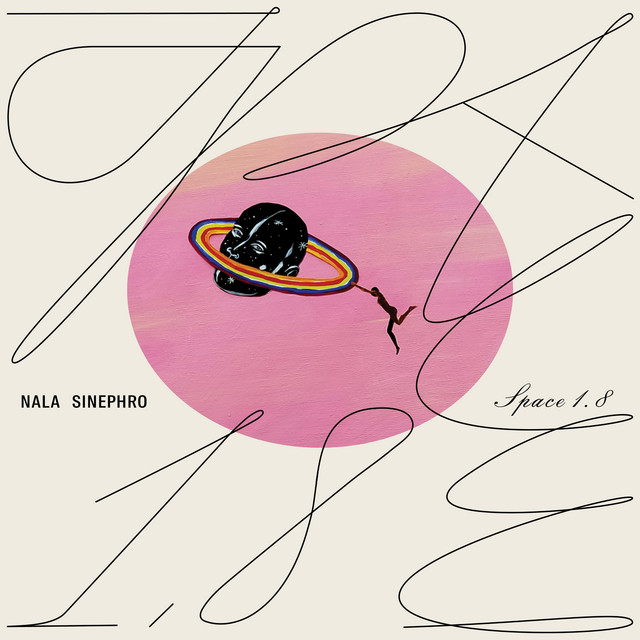 Few debut records have registered as incredibly this decade as Nala Sinephro’s, which arrived in 2021 and righteously became a vanguard for the modern state of experimental jazz music. Space 1.8 is delicate and beautifully assembled, and on “Space 2,” Sinephro called upon James Mollison, Lyle Barton, Shirley Tetteh, Jake Long and Rudi Creswick to build multi-dimensional, intergalactic, dreamlike shapes. After Mollison’s tenor saxophone echoes across the song’s first interval, Sinephro’s droning synths lightly surge and Long’s cymbals crash and sway. But it’s Barton’s piano that guides the arrangement into a cresting vibrancy—cascading into a held note sputtering and sprawling. Listening to “Space 2” is, to me, an aural transcription of floating in space and gently drifting out of focus. Listening to “Space 1,” or the 18-minute, conclusive epic “Space 7,” is like crash-landing on a celestial unfamiliarity. The drones buzz while a certain tranquility slowly unfurls. Sinephro asks every listener to step into her bridled dimension, one that is as generous as it is phenomenal. —Matt Mitchell
Few debut records have registered as incredibly this decade as Nala Sinephro’s, which arrived in 2021 and righteously became a vanguard for the modern state of experimental jazz music. Space 1.8 is delicate and beautifully assembled, and on “Space 2,” Sinephro called upon James Mollison, Lyle Barton, Shirley Tetteh, Jake Long and Rudi Creswick to build multi-dimensional, intergalactic, dreamlike shapes. After Mollison’s tenor saxophone echoes across the song’s first interval, Sinephro’s droning synths lightly surge and Long’s cymbals crash and sway. But it’s Barton’s piano that guides the arrangement into a cresting vibrancy—cascading into a held note sputtering and sprawling. Listening to “Space 2” is, to me, an aural transcription of floating in space and gently drifting out of focus. Listening to “Space 1,” or the 18-minute, conclusive epic “Space 7,” is like crash-landing on a celestial unfamiliarity. The drones buzz while a certain tranquility slowly unfurls. Sinephro asks every listener to step into her bridled dimension, one that is as generous as it is phenomenal. —Matt Mitchell
Nation of Language: Introduction, Presence (2020)
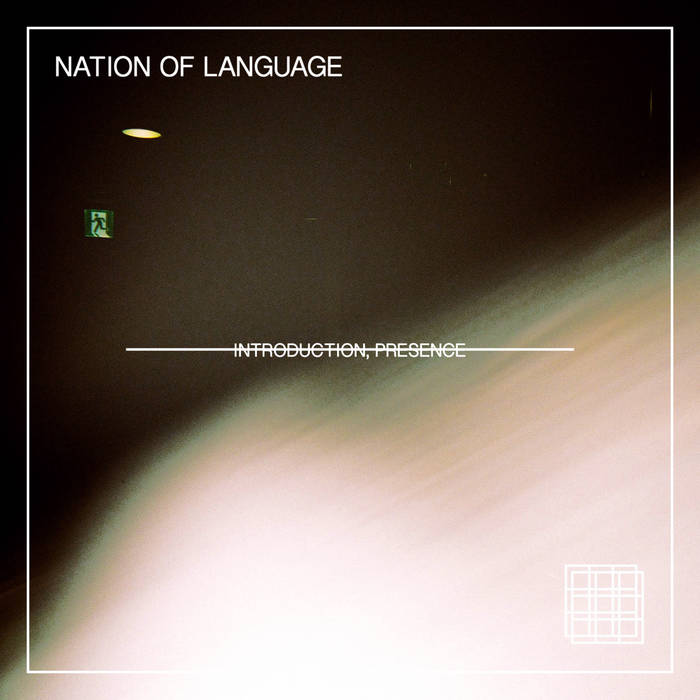 It’s no secret that 1980s nostalgia has been prevalent in indie rock for years now. From Future Islands and Interpol to The 1975 and TOPS, countless bands from the last two decades have found success filtering their music through distinctly ’80s lenses. Still to this day, you can hardly swing a dead cat without hitting an indie band with one or more of these elements: interstellar synths, bass-driven songs, rich production and melodramatic vocals. To join these ranks is both a blessing and a curse. On one hand, there’s a huge demand for music that sounds like it came from the era of big hair and goths, but on the other hand, it’s hard to stand out in such a saturated market—and even harder to make lasting, impactful songs that transcend its revivalist label. New York City band Nation of Language approach this weighty task with more grace and far better songwriting chops than the vast majority of bands who attempt retro pastiches or something close to them. For starters, lead singer and songwriter Ian Devaney (formerly of Static Jacks) has a low-pitched, aching voice that just screams classic new wave, but more crucially, he has an ear for awe-inspiring melodies and synth lines that go above and beyond mere cinematic uplift. Nearly every one of his songs prompts a mental highlight reel of one’s own life, but without the stylish, candy-coated nostalgia that’s fetishized nowadays—it’s the profound kind that allows you to view yourself at your lowest and highest moments and see the beauty in having a finite amount of time to live. —Lizzie Manno [Read our cover story]
It’s no secret that 1980s nostalgia has been prevalent in indie rock for years now. From Future Islands and Interpol to The 1975 and TOPS, countless bands from the last two decades have found success filtering their music through distinctly ’80s lenses. Still to this day, you can hardly swing a dead cat without hitting an indie band with one or more of these elements: interstellar synths, bass-driven songs, rich production and melodramatic vocals. To join these ranks is both a blessing and a curse. On one hand, there’s a huge demand for music that sounds like it came from the era of big hair and goths, but on the other hand, it’s hard to stand out in such a saturated market—and even harder to make lasting, impactful songs that transcend its revivalist label. New York City band Nation of Language approach this weighty task with more grace and far better songwriting chops than the vast majority of bands who attempt retro pastiches or something close to them. For starters, lead singer and songwriter Ian Devaney (formerly of Static Jacks) has a low-pitched, aching voice that just screams classic new wave, but more crucially, he has an ear for awe-inspiring melodies and synth lines that go above and beyond mere cinematic uplift. Nearly every one of his songs prompts a mental highlight reel of one’s own life, but without the stylish, candy-coated nostalgia that’s fetishized nowadays—it’s the profound kind that allows you to view yourself at your lowest and highest moments and see the beauty in having a finite amount of time to live. —Lizzie Manno [Read our cover story]
Nourished by Time: Erotic Probiotic 2 (2023)
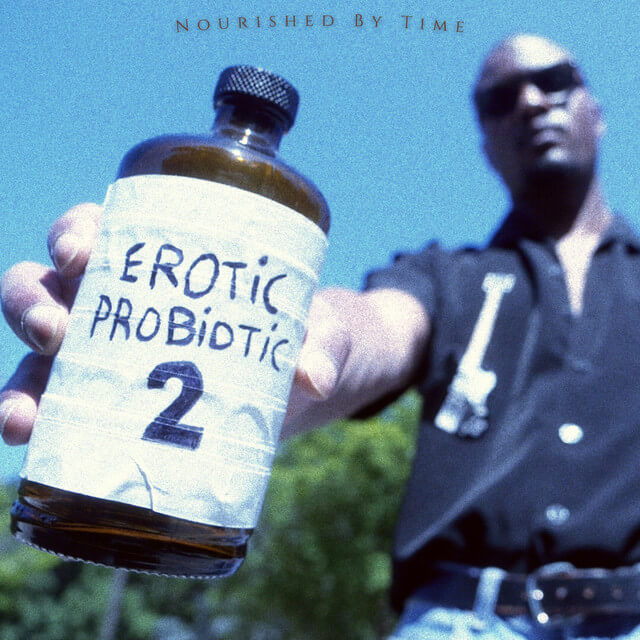 Describing anything as “DIY”—or, God forbid, “bedroom pop”—can conjure the sound of music made minimal by necessity, with its charm derived from its limitations. Though his full-length debut under the moniker Nourished by Time was entirely made in his parents’ basement in Baltimore, Marcus Brown’s blend of ‘90s R&B and ‘80s freestyle is so impressive because it appears to have arrived fully formed. For such a bare-bones operation, its fruits overwhelm. Planting himself at the midpoint between SWV and The Blue Nile, between heartbreak and life under late-stage capitalism, between dance floor bangers and deeply-felt pleas for understanding, Brown threads all of it together to create an idiosyncratic, well-crafted collection of songs that can’t help but attach themselves to you. The melancholic guitar fog of opener “Quantum Suicide” runs perfectly into the synth-driven bounce of “Shed That Fear” and “Daddy.” By the time he’s wringing your heart out with lines like “My prayer is for our clouds to collide / But I have to face the possibility that I’m wasting my time”—delivered in lush harmonic layers on “Rain Water Promise”—you’re ready to pivot with him wherever he aims Nourished by Time’s arrow next. Loving and losing are eternal themes for a reason, but in his isolation, Brown repurposes them into something strikingly original and frequently gorgeous. —Elise Soutar
Describing anything as “DIY”—or, God forbid, “bedroom pop”—can conjure the sound of music made minimal by necessity, with its charm derived from its limitations. Though his full-length debut under the moniker Nourished by Time was entirely made in his parents’ basement in Baltimore, Marcus Brown’s blend of ‘90s R&B and ‘80s freestyle is so impressive because it appears to have arrived fully formed. For such a bare-bones operation, its fruits overwhelm. Planting himself at the midpoint between SWV and The Blue Nile, between heartbreak and life under late-stage capitalism, between dance floor bangers and deeply-felt pleas for understanding, Brown threads all of it together to create an idiosyncratic, well-crafted collection of songs that can’t help but attach themselves to you. The melancholic guitar fog of opener “Quantum Suicide” runs perfectly into the synth-driven bounce of “Shed That Fear” and “Daddy.” By the time he’s wringing your heart out with lines like “My prayer is for our clouds to collide / But I have to face the possibility that I’m wasting my time”—delivered in lush harmonic layers on “Rain Water Promise”—you’re ready to pivot with him wherever he aims Nourished by Time’s arrow next. Loving and losing are eternal themes for a reason, but in his isolation, Brown repurposes them into something strikingly original and frequently gorgeous. —Elise Soutar
Olivia Rodrigo: SOUR (2021)

2021 was the year of Olivia Rodrigo, full stop. The 18-year-old pop sensation made a multi-platinum entrance with “drivers license,” proved she was no fluke on “deja vu,” and put her range on display with “good 4 u.” Still, the lingering question in the lead-up to her debut album SOUR was, “Is Rodrigo for real, or just a flash in the pan?” From the record’s opening moments, it was clear we had our answer: “brutal” begins with a mock orchestral intro before uncorking a left hook in the same pop-punk revival vein as “good 4 u,” with Rodrigo confessing over chugging guitars, “I feel like no one wants me / And I hate the way I’m perceived.” From that song’s supremely relatable teenage angst (“jealousy, jealousy” is another standout of that stripe) and heartfelt ballads like “enough for you” and closer “hope ur ok,” to the hits that made this album an event, SOUR cemented Rodrigo as an artist deserving of the decade’s most meteoric rise. —Scott Russell
Sofia Kourtesis: Madre (2023)
 Sofia Kourtesis captures a warmth few of her contemporaries ever achieve. Arriving after a series of singles and EPs, Kourtesis’ first LP—Madres—finds the Peruvian producer working within storied traditions of deep house and the Berlin nightclub scene, while infusing those influences with a beating heart all her own, like a tender embrace in the heat of a crowded dance floor. Tracks like “How Music Makes You Feel Better” live on the miasma of emotions Kourtesis entangles at any turn, skittering house loops, airy vocal exhalations, and brief chops of soul singer howls. On “Moving Houses,” Kourtesis forgoes beats entirely for an ambient piece centered on decaying loops of her own voice, shedding her usual arsenal to even more intimate poignance. Though built through struggles and pain, Madres is a reciprocal gift from Sofia Kourtesis to the listener, a record that seeks to impart its personal comforts and catharsis onto those who take it into their hearts. —Natalie Marlin
Sofia Kourtesis captures a warmth few of her contemporaries ever achieve. Arriving after a series of singles and EPs, Kourtesis’ first LP—Madres—finds the Peruvian producer working within storied traditions of deep house and the Berlin nightclub scene, while infusing those influences with a beating heart all her own, like a tender embrace in the heat of a crowded dance floor. Tracks like “How Music Makes You Feel Better” live on the miasma of emotions Kourtesis entangles at any turn, skittering house loops, airy vocal exhalations, and brief chops of soul singer howls. On “Moving Houses,” Kourtesis forgoes beats entirely for an ambient piece centered on decaying loops of her own voice, shedding her usual arsenal to even more intimate poignance. Though built through struggles and pain, Madres is a reciprocal gift from Sofia Kourtesis to the listener, a record that seeks to impart its personal comforts and catharsis onto those who take it into their hearts. —Natalie Marlin
Squid: Bright Green Field (2021)
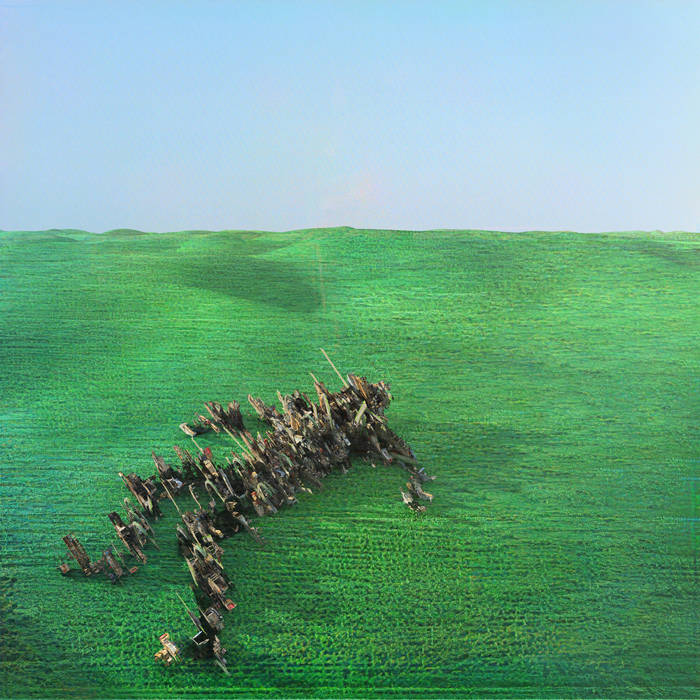 Toward the end of Squid’s debut album Bright Green Field comes a brief moment of liberation. “Well, I’ve always been told what to do,” the narrator of “Peel St.” mumbles, “but now, I’m free / There’s no warden following me.” Whether the prison from which this character has been released is literal or one of the mind is left for the listener to decide, and most of the details underpinning Bright Green Field’s paranoid, dystopian universe are similarly vague. More immediately apparent is Squid’s utter disregard for rock convention—where drummer-vocalist Ollie Judge’s words leave gaps in his Orwellian brutalism, his chainsaw of a shout-speak and his band’s squawking guitars fill in the blanks. Though Bright Green Field is easily Squid’s most musically varied and ambitious work yet, the British quintet—whose contemporaries include black midi and Black Country, New Road—remains thematically tethered to the pervasive anxiety and fear that have defined them from their 2019 breakout single “Houseplants” through last year’s Sludge / Broadcaster 10”, their debut for storied electronic and experimental label Warp. If anything, Bright Green Field—co-written by the entire group and produced by Speedy Wunderground mastermind Dan Carey—raises the band’s longtime stakes. Where “The Cleaner,” the highlight from 2019’s Town Centre EP, hinted at simultaneously more abrasive and hooky grooves to come, Bright Green Field delivers on that promise without diminishing Squid’s madness. —Max Freedman
Toward the end of Squid’s debut album Bright Green Field comes a brief moment of liberation. “Well, I’ve always been told what to do,” the narrator of “Peel St.” mumbles, “but now, I’m free / There’s no warden following me.” Whether the prison from which this character has been released is literal or one of the mind is left for the listener to decide, and most of the details underpinning Bright Green Field’s paranoid, dystopian universe are similarly vague. More immediately apparent is Squid’s utter disregard for rock convention—where drummer-vocalist Ollie Judge’s words leave gaps in his Orwellian brutalism, his chainsaw of a shout-speak and his band’s squawking guitars fill in the blanks. Though Bright Green Field is easily Squid’s most musically varied and ambitious work yet, the British quintet—whose contemporaries include black midi and Black Country, New Road—remains thematically tethered to the pervasive anxiety and fear that have defined them from their 2019 breakout single “Houseplants” through last year’s Sludge / Broadcaster 10”, their debut for storied electronic and experimental label Warp. If anything, Bright Green Field—co-written by the entire group and produced by Speedy Wunderground mastermind Dan Carey—raises the band’s longtime stakes. Where “The Cleaner,” the highlight from 2019’s Town Centre EP, hinted at simultaneously more abrasive and hooky grooves to come, Bright Green Field delivers on that promise without diminishing Squid’s madness. —Max Freedman
Tex Patrello: Minotaur (2024)
 Few records in 2024 have been as inventive as Tex Patrello’s debut, Minotaur. Released seven years after her yellow curse EP, the Dallas performer stretches pop delicacies and traditions out like a wet T-shirt. The songs are expressive, meandering across vignette textures that whistle, hum, glitch, gleam, ache and entrance. Patrello sings like a Shakespeare of life’s underbelly, using spiritual imagery and experimental, heady and glowy folktronics to computerize her own symphony. Minotaur is a fairytale told with a Zoomer’s edge, making the icky-sticky look cute and the cute look downright ravenous. “Pony Meat,” “Eat It” and “Panda Express” are dynamic and prodigious, while you can make a case for “Wichita Falls” being one of the year’s (and decade’s) strangest and sweetest delights. “I blow a wish into your ballsack, and you’ve something to ask,” Patrello sings. “‘Do you take me now?’ Uh-huh, I do. And do you love me? ‘I do, too.’” Minotaur is a brainy, classical, provocative wonder. —Matt Mitchell
Few records in 2024 have been as inventive as Tex Patrello’s debut, Minotaur. Released seven years after her yellow curse EP, the Dallas performer stretches pop delicacies and traditions out like a wet T-shirt. The songs are expressive, meandering across vignette textures that whistle, hum, glitch, gleam, ache and entrance. Patrello sings like a Shakespeare of life’s underbelly, using spiritual imagery and experimental, heady and glowy folktronics to computerize her own symphony. Minotaur is a fairytale told with a Zoomer’s edge, making the icky-sticky look cute and the cute look downright ravenous. “Pony Meat,” “Eat It” and “Panda Express” are dynamic and prodigious, while you can make a case for “Wichita Falls” being one of the year’s (and decade’s) strangest and sweetest delights. “I blow a wish into your ballsack, and you’ve something to ask,” Patrello sings. “‘Do you take me now?’ Uh-huh, I do. And do you love me? ‘I do, too.’” Minotaur is a brainy, classical, provocative wonder. —Matt Mitchell
The Smile: A Light for Attracting Attention (2022)
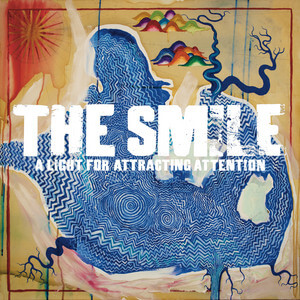
I went back and forth on this one and whether or not to include it—because, is it really a debut album? By all technical points, yes, it is. But, The Smile is just Radiohead without Colin Greenwood, Ed O’Brien and Philip Selway. You might be thinking, well, that’s over half of the band—and yes, you would be right about that. However, Radiohead is nothing without Thom Yorke and Jonny Greenwood—the visceral lifeblood tandem of that outfit, the brainchildren of some of the most legendary albums ever put to tape. When I think of debut albums, I think of artists not yet proven in the scope of modern music. If we must consider A Light for Attracting Attention to be a bonafide debut, then you can’t ignore that it’s a very good one—one that puts Radiohead’s own debut, Pablo Honey, to shame. “The Smoke” and “The Same” and “Free In the Knowledge” are great tracks that showcase both Yorke’s ever-unflinching vocals and Greenwood’s constructional genius. The album is better than anything the two Radiohead members have done together since In Rainbows, though the work is also devastating and poignantly original and untethered to the band that changed the landscape of experimental rock ‘n’ roll forever. It taps into Greenwood’s sprawling, classical techniques he uses when scoring films, as much of the record is as progressive and avant-garde and cinematic as anything Radiohead have ever made. A Light for Attracting Attention is truly brilliant, though, and exceptional. It doesn’t reinvent music, but it’s a force of perfection that dares to be reckoned with. —Matt Mitchell
Veeze: Ganger (2023)
 Detroit rapper Veeze’s 2023 LP, Ganger, is one of the most moving rap albums of the decade, punctuated by “Safe 2,” a sweet, dreamy ballad that shows just how intimate the MC can go when the delicious beats of tracks like “No Sir Ski” and “Tony Hawk” turn sublime. Ganger is a precious album that oscillates between pop, folk, soul and trap, and Veeze is our confident steward—whispering flows so lightly his vocals grow gravelly with unbotheredness. With guest appearances from Lil Yachty, Babyface Ray, Lucki and Lil Uzi Vert, not even the most braggadocious and uptempo tracks ever grow too chaotic. With that, Ganger is patient and methodical; a grand statement from an under-the-radar artist who grows stronger with every project yet never wavers from his steadfast brilliance. If Ganger is any immediate sign of what’s to come from Veeze, his punchlines and vulnerability will always be essential in this generation of rap. —Matt Mitchell
Detroit rapper Veeze’s 2023 LP, Ganger, is one of the most moving rap albums of the decade, punctuated by “Safe 2,” a sweet, dreamy ballad that shows just how intimate the MC can go when the delicious beats of tracks like “No Sir Ski” and “Tony Hawk” turn sublime. Ganger is a precious album that oscillates between pop, folk, soul and trap, and Veeze is our confident steward—whispering flows so lightly his vocals grow gravelly with unbotheredness. With guest appearances from Lil Yachty, Babyface Ray, Lucki and Lil Uzi Vert, not even the most braggadocious and uptempo tracks ever grow too chaotic. With that, Ganger is patient and methodical; a grand statement from an under-the-radar artist who grows stronger with every project yet never wavers from his steadfast brilliance. If Ganger is any immediate sign of what’s to come from Veeze, his punchlines and vulnerability will always be essential in this generation of rap. —Matt Mitchell
[Editor’s Note: A previous edition of this list incorrectly included Parannoul’s To See the Next Part of the Dream]
Read our mid-decade album and song rankings here and here.







































